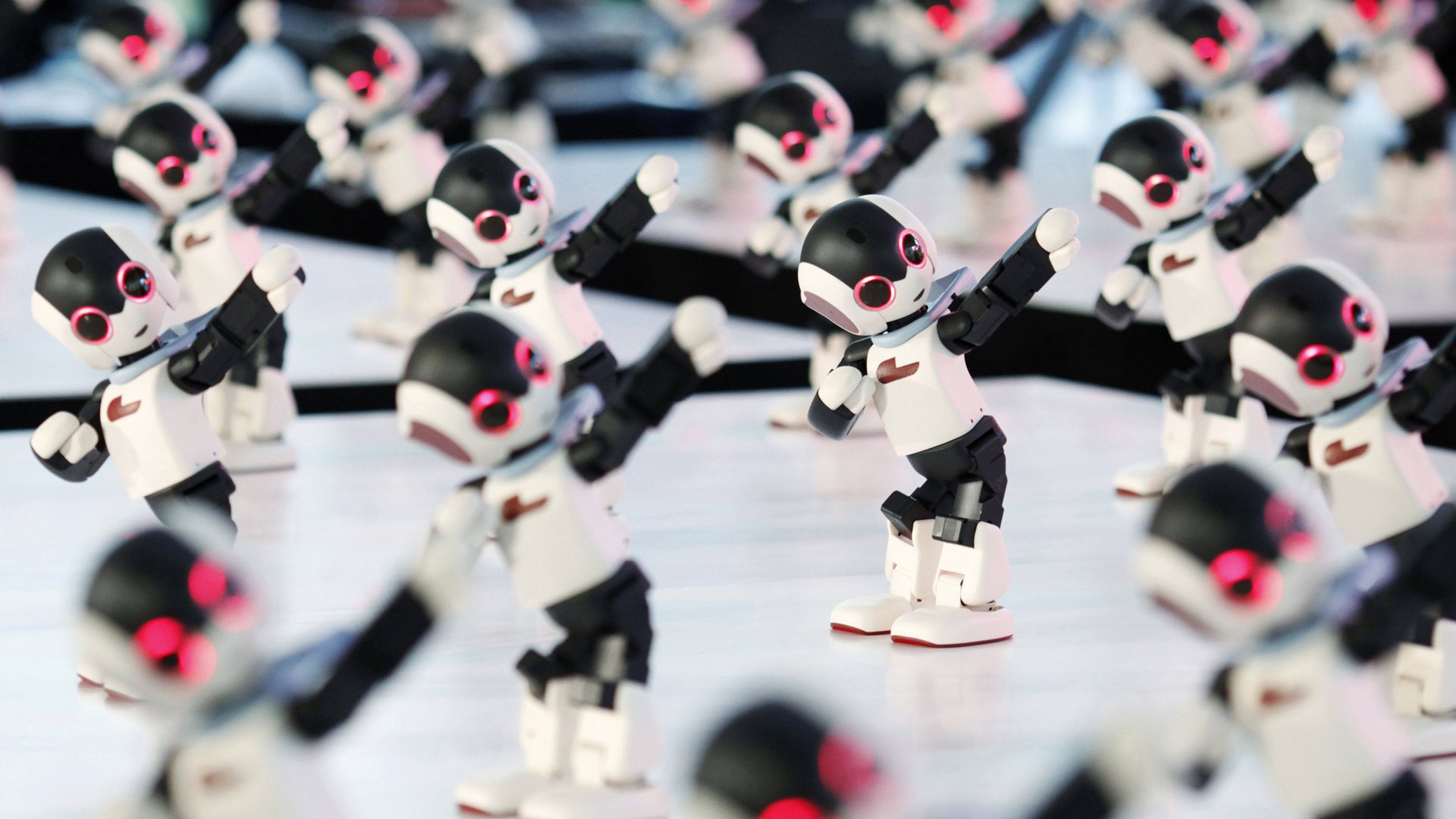Five thankless jobs that technology will make better
The future of work is about exploring new experiences, learning new skills, and contributing to sustaining the human race. To paraphrase William Gibson: the future is here, it is just unevenly distributed.


The future of work is about exploring new experiences, learning new skills, and contributing to sustaining the human race. To paraphrase William Gibson: the future is here, it is just unevenly distributed.
New labor economies are emerging every day, from socially supported platforms like Kiva and Kickstarter to TimeBanking and the digitally-enhanced barter economies of Greece. Labor can evolve from being a burden to a path toward personal and social transcendence. We simply need to “experience” our work in a different and more participatory way.
The new IT tools that augment our labor often do so in uncomfortable ways. IT is an extension of industrial-age processes, organizing us into restrictive lines, repetitive body language, and time-boxed prisons. Think of workers in a fulfillment center or coders in a cube farm. Now, we are compounding these constraints by outfitting our environments, and even our bodies, with IT—software programs that quantify our activities at work and devices that generate data about our every move. Consider how wearables subtly recast human movement as a unit of financial value; in this new world, people are data. We prioritize task optimization over human well-being, and mechanistic control over natural body rhythms.
The phenomenon of “tech solutionism” convinces us that flipping the switch on new technology can solve any problem, including human motivation. But favoring the machine and computational efficiency devalues labor, fueling a social atmosphere of rejection and helplessness.
This new shift in labor lies at the intersection of several forces: alternative currencies, knowledge work, and innovation communities. To bring these forces together, every job must adopt the “learn by doing” model. Work becomes an education platform.
Consider the following models, in which newly acquired skills could be traded on a global time-sharing marketplace:
Warehouse associate with cybernetics
Laborers in modern fulfillment centers are forced to operate at the cadence of their automated and robot partners, and eventually will be replaced by them. The warehouse associates of the future could learn how their robot partners are maintained and become knowledgeable about their construction and mechanics, which would result in a labor force of skilled robotic engineers.
Plumbing with civil engineering and water conservation
People laboring on the smaller end points of our broader infrastructure could understand the systemic implications of their decisions (for example, total water wasted due to loose fittings). Through these insights, they could learn how systems behave from the bottom up and use this information to augment sensor data that exists on newer Internet of Things plumbing systems.
Childcare with evolutionary psychology
The babysitter with knowledge of Jean Piaget’s “stages of cognitive development” could capture valuable data at scale, which could be shared anonymously through a system like PatientsLikeMe. This would provide new insights into childhood development at the societal level and could also have profound effects on how childcare workers operate in the future.
Service and hospitality with art and design
Hospitality is centered on presentation and aesthetics. People in the hospitality industry should be trained in aesthetics, craftsmanship, and theater in order to understand the artistry inherent in daily life. With this training, they could create expressions that articulate our day-to-day experiences in ways we never considered.
End-of-life care with metaphysics
Palliative care work is challenging, but many consider it rewarding. Future generations of people who choose to do this work should have access to information and philosophies that could provide context to their experiences. These mental tools could provide a framework for these laborers to share with society their insights into the questions of life and death.
Rethinking how we work means reframing the reasons why we work. We need a new framework to understand how skills relate to job tasks. We also need to understand the personal goals and motivations of the worker in order to provide a meaningful development path. In this future, technology offers the option to redefine what we call work.
A longer version of this article appears as part of frog’s Future of Work collection, found here.